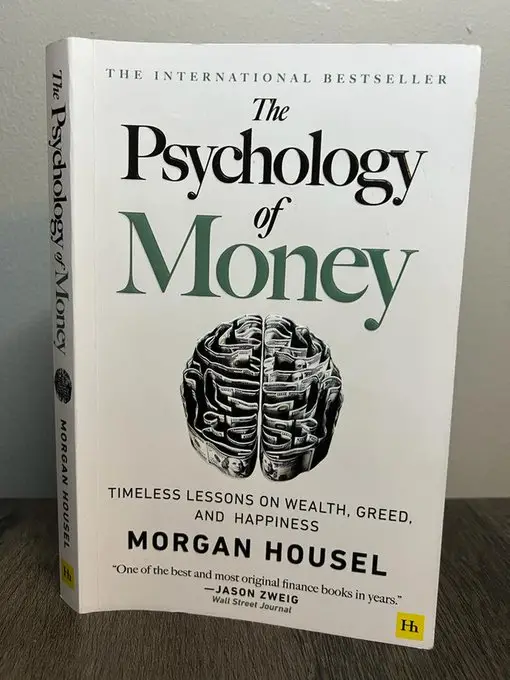• No One’s Crazy
People’s money decisions are justified by taking the information they have at the moment and plugging it into their unique mental model of how the world works.
Origins and upbringing shape money decisions.
We do crazy things with money. But no one is crazy.
• Never Enough
Life isn’t fun without a sense of enough.
Enough is realizing that the opposite—an insatiable appetite for more—will push you to the point of regret.
Social comparison is a battle that can never be won.
Accept that you will have less than those around you.
• Confounding Compounding
$81.5 billion of the $84.5 billion in Warren Buffet’s net worth came after he was 65.
His skill is investing, but his secret is time.
If you want to do better as an investor, the most powerful thing you can do is increase your time horizon.
• Getting Wealthy vs. Staying Wealthy
There is only one way to stay wealthy: some combination of frugality and paranoia.
Getting money requires taking risks, being optimistic, and putting yourself out there.
But keeping money requires the opposite of taking risks.
• Tails, You Win
Long tails, the farthest ends of the distribution of outcomes, have tremendous influence in finance, where a small number of events account for the majority of outcomes.
Anything that is huge, profitable, famous, or influential is the result of a tail event.
• Freedom
The ability to control your time and do what you want is the best dividend money can pay.
The highest form of wealth is to live life on your own terms.
Money’s greatest intrinsic value—and this can’t be overstated—is its ability to give you control over your time.
• Man in the Car Paradox
No one is as impressed with your possessions as you are.
People tend to display wealth to be liked and admired.
But in reality, people often bypass admiring you.
They use your wealth as a benchmark for their own desire to be liked and admired.
• Wealth is What You Don’t See
We tend to judge wealth by what we see: cars, clothes, and houses.
What we don’t see are investment accounts. We rely on outward appearances to gauge financial success.
True wealth is hidden. It is assets not converted into things you see.
• Save Money
Building wealth has nothing to do with your income but with your savings rate.
Less ego means more wealth. Saving is the gap between your ego and income.
You can spend less if you desire less.
You will desire less if you don’t care what people say about you.
• Reasonable > Rational
Don’t aim to be coldly rational when making financial decisions. Aim to just be pretty reasonable.
Decide on what makes you feel comfortable and at peace.
Investing has a social component that can’t be ignored.
• Surprise
The correct lesson to learn from surprises is that the world is surprising.
We should not use past events to make future predictions.
Instead, we should use the past as an admission that we do not know what will happen.
• Room for Error
Margin of safety is the only effective way to safely navigate a world that is governed by odds, not certainties.
You have to give yourself room for error. You must prepare for your plan not to go as planned.
• You’ll Change
Planning for the long term is difficult because people’s goals and desires always change.
People are poor forecasters of their future selves. What you want today may be different in the future.
Be open to change and adapt your strategy.
• Nothing is Free
Everything has a price, but not all prices appear on labels.
The price of a lot of things is not obvious until you’ve experienced them when the bill is overdue.
Define the cost of success and be ready to pay for it. Nothing worthwhile is free.
• You and Me
Beware of taking financial cues from people playing a different game than you are.
A day trader may want to hold an investment for a day, while you may want to hold it for five years.
Just do what works for you and play your own game.
• The Seduction of Pessimism
Optimism sounds like a sales pitch; pessimism is like someone trying to help.
Progress is too slow to notice, but setbacks are too quick to ignore.
Creating a narrative around pessimism is easy; story pieces tend to be fresher and more recent.
• When You will Believe Anything
Stories are by far the most powerful force in the economy.
They are the fuel that can let the tangible parts of the economy work or the brake that holds our capabilities back.
When the stakes are high, you will believe anything







